The Sea is built around research in three different subjects within Åbo Akademi University: Environmental and Marine Biology, Public Administration and Maritime Law, and Industrial Management. The team is further supported by a steering group within the university.
Professors:
⇩ Erik Bonsdorff ⇩ Nina Tynkkynen Marko Joas ⇨ Kim Wikström ⇨ ⇩ Magnus Hellström ⇩ Henrik Ringbom
Associate professors:
⇩ Anna Törnroos-Remes ⇩ Christian Panch-Hattich
PostDocs:
⇩ Anastasia Tsvetkova ⇩ Sam Grönholm
Doctoral Students:
⇩ Thaysa Portela de Carvalho
Professor of Practice (2019-2020):
Maria Laamanen ⇨
Guest Professors (2018-2020):
Per Jonsson ⇨ Kristine Kern ⇨ Kent Eriksson ⇨
Affiliated Researchers ⇨
Erik Bonsdorff
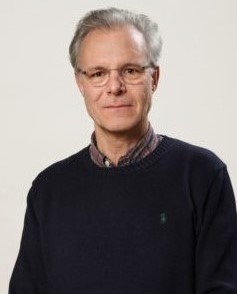
“I have an over 40 year experience of and a broad interest in marine biology and ecology, in particular the Baltic and adjacent seas. I study how the ecosystem responds and adapts to both long-term natural change and anthropogenic stress. I am also interested in Science-to-Policy for the benefit of the sea and the societies that depend on it”
Professor
Email: erik.bonsdorff@abo.fi
Phone: +358 (0)40 536 3539
Åbo Akademi University profile
Background
Erik Bonsdorff recieved his MSc (1979) and PhD (1985) from Åbo Akademi University and has done numerous research-visits abroad. He was 1986-1997 head of Husö Biological Station, and 1997-1999 professor of marine biology at Umeå University and Head of Umeå Marine Sciences Centre, Sweden. Bonsdorff has been professor of marine biology at Åbo Akademi University since April 1999, and Nordic visiting professor (20%) at the University of Gothenburg for 5 years (2000-2005).
He was Baltic Sea advisor for the Royal Swedish Academy of Sciences from 2006-2008, and a member/board- and delegation-member of learned societies and foundations (the Finnish Society of Sciences and Letters, the Swedish Academy of Engineering Sciences in Finland, Kungliga Skytteanska Samfundet i Sverige, Östersjöfonden on Åland). Bonsdorff has been a member of boards and scientific advisory boards for Nordic strategic research initiatives and centers of excellence (the Nordic Marine Academy 2005-2011, Centre for Marine Evolutionary Biology at the University of Gothenburg, Sweden, and the Centre for Coastal Research, University of Agder, Norway).
He has been a member of several editorial- and advisory boards of scientific journals (e.g. Ambio, MEPS), and has published about 200 papers, chapters and reports (cited over 10.000 times). Bonsdorff has continuously been writing popular science and policy documents (columns, blogs, debate-articles, general overviews), and contributing to science-to society through participation in various media. He became National Professor of the Year in 2017, and has recieved several academic and other awards. Bonsdorff has been 2017-2021 the Initiator and Chair of the Åbo Akademi University strategic research profile The Sea.
Expertise
General marine ecology (ecosystem structure and functioning, food web ecology, biodiversity) and environmental policy. Specific knowledge on zoobenthos, fish and their interactions, coastal as well as open sea ecosystems, climate change-induced change in combination with other natural and anthropogenic stressors (such as eutrophication, hypoxia, habitat degradation, role of invasive species etc.).
Impact
Since the 1980’s, Bonsdorff has been active in communication with stakeholders, policy- and decision-makers and the general public on marine/aquatic environmental issues as well as general aspects of environmental policy and university-level education. He’s a widely known speaker on (marine) environmental issues both within academia and society at large, nationally and abroad, and a board member of the Finnish Cultural heritage Foundation.
Erik’s research focuses on biological and ecological responses and adaptations to human-induced pressures (e.g. eutrophication, global climate-change effects, hypoxia, fisheries, invasive species, physical and chemical stressors, land-coast interactions) on marine ecosystems. Various aspects of structural and functional biodiversity, food-web ecology and long-term change, with focus on coastal, archipelago and off-shore benthic communities, including benthic-pelagic linkages.
He’s actively involved in science-to-policy advice within the Baltic Sea region and beyond. His main regions of research include the Baltic Sea with focus on its coastal and archipelago systems, Arctic benthic food webs, urban coastal lagoons, and general aspects of large-scale and long-term drivers of marine ecosystem-change.
Bonsdorff has actively participated in numerous large-scale Baltic Sea initiatives (namely the BONUS EEIG and other international networks) as well as various Nordic (Centers of excellence NorMER, Nordic marine Academy NMA etc) and European research initiatives (Horizon2020-projects, Innovative Training Networks/Marie Sclodowska Curie Actions). He’s currently completing the BONUS-programme within a synthesis-project on Baltic Sea food webs (BONUS XWEBS), and participating in two Arctic marine projects/programs (EU H2020 ECOTIP and the Norwegian East Greenland project TUNU).
Research & Projects:
⇧ To the top
Nina Tynkkynen
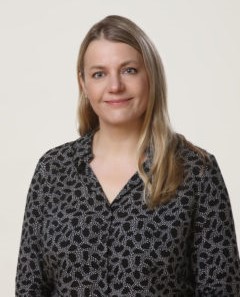
“I am an environmental social scientist interested in societal dynamics of environmental governance”
Professor
Email: nina.tynkkynen@abo.fi
Phone: +358 504400406
Åbo Akademi University profile
Background
Nina Tynkkynen received her PhD in Environmental Policy in 2008 from the University of Tampere. She has worked as a senior lecturer (University of Turku 2015-), senior research fellow (University of Tampere 2014), postdoctoral research fellow (2010-2014) and various other academic positions. She received the title of adjunct professor (docent) at the University of Helsinki, which was awarded in 2014, and she became chair of the steering group of The Sea from 2021-. Currently, she has the title of professor in environmental governance and policy.
Expertise
Environmental policy and governance related to the marine environment in general, and the Baltic Sea area in particular; multilevel governance, the politics of knowledge and the construction of environmental problems and the related policies.
Impact
Nina’s research is featured in international and domestic high-impact social scientific journals and in national non-scholarly publications. Selected publications include “Russia and the politics of international environmental regimes: Environmental encounters or foreign policy?” (a monograph by Edward Elgar in 2015; with A. Korppoo & G. Hønneland). In addition, she worked as the Editor-in-Chief in the Finnish academic journal Alue & Ympäristö in 2013-2016.
Her research involves a lot of stakeholders, as knowledge co-production and co-creation are the core ideas in her research methodology. The aim is to practice science not only to the public, but also with the public. She is also the member of Itämeripaneeli by the cities of Turku and Helsinki.
Nina’s research focuses on multilevel governance settings relevant for the protection of marine environments. Methodologically, her research is based on the notion that in order to govern environmental problems, the problems and their solutions need to be defined. Accordingly, she is interested in the perceptions, knowledge and ideas that various stakeholders have on the marine environment and its problems.
In the project Living with the Baltic Sea in a changing climate: Environmental heritage and the circulation of knowledge SeaHer (Academy of Finland 2018-2022), she and her research group study how different types of environmental knowledge, including the so called local or experience-based knowledge, could better be fitted together and used for the benefit of both scientific inquiry as well as effective and communicative environmental governance.
Research & Projects:
⇧ To the top
Anna Törnroos-Remes
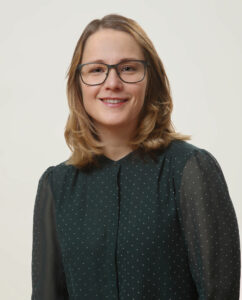
“I have a strong interest in what roles marine organisms play in nature, for the well-being of us humans and for a sustainable economy”
Associate Professor
Email: anna.m.tornroos@abo.fi
Phone: +358 414341741
Åbo Akademi University profile
Background
She received her PhD in Marine Biology 2014 from Åbo Akademi University, after which she worked as postdoc within the EU BONUS project BIO-C3, and as a guest researcher at the Centre for Ocean Life, Technical University of Denmark.
Expertise
Marine ecology, ecosystem functioning, coastal ecosystems and biodiversity, Baltic Sea animals and environments, seafloor and bottom-living organisms, trait-based approaches.
Impact
Her research is featured in international high-impact natural science journals, Nordic popular science journals and newspapers. An important aspect of her cross-disciplinary work is converting knowledge about the marine ecosystem into information for policy and management, technology and business. She is involved in HELCOM and ICES working groups, and also engaged in dialog about marine biodiversity and environmental issues with society in various ways, e.g. through various private stakeholders and schools with the BIVALVIA cross-disciplinary art-science-technology project (in Swedish).
Anna’s research focuses on the functioning of coastal areas, marine environments and particularly the seafloor. To understand the functioning and be able to assess the state and pressures on the marine ecosystem, she applies and develops the “trait-based approach”. This approach centers around the characteristics or traits of marine organisms, such as how they feed, live and reproduce, which allows us to understand how marine organism contribute to e.g. production, nutrient circulation and habitat provision, as well as predict ecological strategies in contrasting environments under global change.
As a new research avenue within The Sea, she aims to investigate the role marine organisms play for us humans, for which she leads a project on “Human-marine animal relationships in the context of biodiversity and human-wellbeing” (Kulturfonden 2019).
Research & Projects:
- H2020 ECOTIP
- Human-marine organism relationships (Kulturfonden)
⇧ To the top
Magnus Hellström
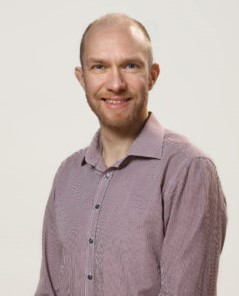
“I have a passion for discovering and designing ways in which business operations by, at, and in the sea can be made more sustainable. In my research I often use a cross-disciplinary and collaborative clinical approach to new knowledge creation, working in close connection with practitioners”
Professor
Email: magnus.hellstrom@abo.fi
Phone: +358407379980
Åbo Akademi University profile
Background
Dr. Hellström earned his doctorate degree in industrial management from Åbo Akademi University. He holds the title of docent (project business) at the same university. He also holds a part time position at the Department for Working Life and Innovation at the School of Business and Law at University of Agder in Norway.
Expertise
Project business and management, modularization, solutions selling, servitization of manufacturing, sustainable and circular business model design, business ecosystem modelling, design science research, use of serious games in education.
Impact
Publishing in a variety of fields, Magnus Hellström’s work has appeared in journals such as Journal of Cleaner Production, Industrial Marketing Management, and International Journal of Project Management. In 2017, “Network management practices – In Search of Collaborative Advantage”, a book co-edited by Magnus, was published by Palgrave Macmillan. In addition to his academic work, Magnus has been actively popularizing his research and authored booklets on modularization and solutions selling.
Magnus’ research revolves around new business models in industrial ecosystems and project-based industries, such as ones based on modularization, servitization, collaborative business practices, digitalisation, and sustainability.
Research & Projects:
- Baltic Loop (INTEREG)
- RAAS
- FITech
- BATMAN (NFR)
- DIKU Serious games (DIKU) (in Norwegian)
- SMARTER
- DEOS
- CPT
- AutoMare EduNet
⇧ To the top
Henrik Ringbom
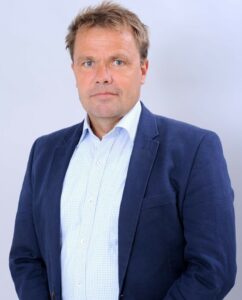
“Anything that floats or sinks in the sea is part of my research interests. Apart from that, I spend as much time as I can at sea, preferably on board floating things.”
Professor
Email: henrik.ringbom@abo.fi
Phone: 040 763 1071
Åbo Akademi University profile
Background
Henrik has been since 2012 part-time Professor at the Scandinavian Institute of Maritime Law at the University of Oslo and since 2019 at the University of Turku. Previous work experience includes being Head of Unit for Marine Environment, Training and Statistics at the European Maritime Safety Agency (EMSA) (2007-2012) and Administrator at the Maritime Safety Unit of the European Commission (1997-2003).
Expertise
Law of the sea, maritime law, international environmental law, EU-law, marine governance.
Impact
He has published widely in the field of European and international shipping and environmental law, some 40 peer reviewed articles and 4 books or edited volumes. In addition, he has authored some 10 expert studies for Finnish and Norwegian ministries and other authorities. He is an observer representative at the European Maritime Safety Agency (EMSA) Administrative Board and the past President of the Finnish Maritime Law Association.
He is also a member of Advisory Board of Finnish (DIMECC) ecosystem for autonomous maritime ecosystem, OneSea Autonomous Maritime Ecosystem and of the Norwegian Forum for Autonomous Shipping and of the Governing Board of the Scandinavian Institute of Maritime Law, University of Oslo.
Henrik’s research focus lies in the interaction between different regulatory layers in a marine setting. A key area of interest has been the relationship between EU law and the law of the sea, when it comes to shippping regulation, but the inter-relationship between regulatory layers has also been key in his more recent research into autonomous ships and marine governance issues more broadly.
Research & Projects:
- Sea4Value Fairways
- Charting Regulatory Frameworks for Maritime Autonomous Surface Ship Testing, Pilots, and Commercial Deployments
- MOSPA
- BALEX (in ÅAU website)
- AAWA
- CompMon
- UN-GEF: Governance Challenges, Gaps and Management Opportunities in Areas Beyond National Jurisdiction
- BaltReg (in Swedish)
- AutoMare EduNet
⇧ To the top
Christian Pansch-Hattich
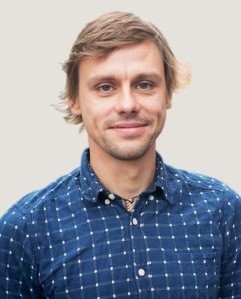
“I am a marine ecologist fascinated by the sea and the interactions species have among each other. I particularly look into the underwater environment with a view for the plentiful scales at which processes occur, from small-scale and short term processes to large-scale and long-term changes”
Associate Professor (Tenure-track)
Email: cpanschh@abo.fi
Phone: +358 50 5126850
Background
Christian received his PhD in Marine Biology in 2012 from Kiel University, Germany, after which he worked as postdoc researcher at Gothenburg University in Sweden. In 2014, Christian received a Helmholtz postdoc fellowship to work at GEOMAR Helmholtz Centre for Ocean Research Kiel: Following this he received a researcher position at GEOMAR establishing his own independent research group. Christian has recently taken a position as Associate Prof. of Marine Biology at Åbo Akademi University, donated by the city of Turku.
Expertise
Marine eco-physiology and ecology, ecosystem functioning and biodiversity, climate extremes, environmental variability across scales, climate change research.
Impact
The output Christian produces is widely recognized by the scientific community. Research articles are published in high-impact international natural science journals. Christian is actively spreading his most-recent research results at many renown international conferences. In order to transfer scientific knowledge, Christian has also produced film material featuring his research.
Christian’s research focuses on the impacts of environmental variability and extreme climatic events, such as marine heatwaves, on benthic marine communities. Here, Christian has developed novel infrastructure and new approaches in order to address the complexity of variable environments in a climate change context. He applies approaches from eco-physiology to testing entire marine communities in response of multiple and fluctuating climate change drivers.
Within The Sea, Christian aims to investigate the role of extreme climatic events within the Archipelago Sea, their perception in society, and measures that may help mediate their negative impacts on the underwater ecosystem.
Research & Projects:
- BaltVib
- Marine heatwaves in the Archipelago Sea – from identification and measuring their impacts, to implementation of mitigation strategies (Kulturfonden)
⇧ To the top
Anastasia Tsvetkova
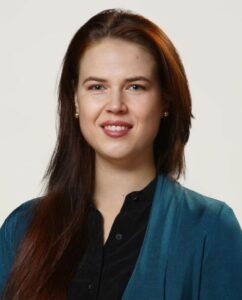
“I believe that there doesn’t have to be a trade-off among environmental, economic and social sustainability when we talk about the Baltic Sea. Rather, those dimensions can reinforce each other if we carefully guide the evolution of maritime business ecosystem”
Postdoctoral Researcher
Email: anastasia.tsvetkova@abo.fi
Phone: +358 40 934 88 92
Åbo Akademi University profile
Background
She graduated from St. Petersburg State Polytechnic University in 2009 (MSc) and received her doctoral degree in Industrial Management from Åbo Akademi University in 2015 (Dr.Tech). Anastasia has worked as researcher at the Laboratory of Industrial Management and at PBI Research Institute, Turku, since 2010. She has been a visiting researcher at Bartlett School of Construction and Project Management at University College London in 2012 and spent six months as a visiting scholar at Global Projects Center at Stanford University in 2015.
Expertise
Business ecosystems, value creation, sea logistics, shipbuilding, industrial ecology, business models, institutional barriers.
Impact
The research done on sustainable short sea shipping in the Baltic Sea within REBUS program led by Anastasia won FIMECC Prize in 2015 for innovativeness and impact on Finnish industry.
Anastasia’s research focuses on the complexity and dynamism of business ecosystems, as well as ways to manage and benefit from it. Sea logistics ecosystem is formed by a multitude of actors, including the actual logistics operators, port-related actors, shipbuilding sector, and other critical influencing actors like governmental and non-governmental organizations. To ensure its sustainable future, it is necessary to take a holistic approach and see any individual actor’s business model or technological innovation as a part of the whole complex and dynamic structure that affects and is affected by this particular innovation.
Anastasia’s research concerns institutionalization of business ecosystems, innovative business models for shaping them, development of collaboration mechanisms required for industry restructuring, and governance of system investments.
Research and Projects:
⇧ To the top
Sam Grönholm
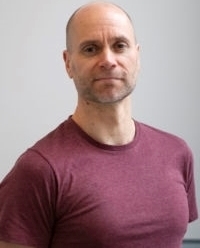
“My research identifies the key features and embedded challenges in the multi-level governance of the Baltic Sea region. I work towards creating an overall understanding of the governing styles used in steering and administering the transboundary problems in the region.”
Project Researcher
Email: Sam.Gronholm@abo.fi
Phone: +358 2 2154160
Åbo Akademi University profile
Background
Sam Grönholm earned his doctorate degree in public administration from Åbo Akademi University. He has worked as a researcher in various projects that have studied the complexities of the multi-level governance of the Baltic Sea region. He has also worked in the Baltic Sea region multi-level governance setting, as a project officer for climate change and sustainable development at the Council of the Baltic Sea States Secreteriat, an inter-governmental network, and as a special advisor on urban sustainable development for the Union of the Baltic Cities, a city network with close to 100 members.
Expertise
Multi-level governance of wicked transboundary problems, environmental governance in a transnational setting, urban climate governance.
Impact
Sam’s research on the Baltic Sea region is featured in international science journals, in academic book chapters, in Finnish publication series upheld by public and state entities, and in international publication series that have a focus on the Baltic Sea region. In addition, Sam has conducted research studies on behalf of inter-governmental and city networks in the Baltic Sea region. These sustainable development studies have been designed to inform public policy-making, and to provide a basis for operationalizing and guiding the implementation of the United Nation’s Sustainable Development Goals in a Baltic Sea region context.
Sam’s research focuses on the multi-level steering and administration of transboundary problems in the Baltic Sea region. Studying and analyzing the steering and administration dynamics of the Baltic Sea region has been a focal point of his research for more than 15 years. His research is driven by the ambition to identify different steering styles and associated challenges, in order to create an overarching understanding of the key characters of the multi-level governance setting. This adaptive and complex setting constitutes the basis for governing the transboundary problems in the Baltic Sea region.
Research and Projects:
⇧ To the top
Thaysa Portela de Carvalho
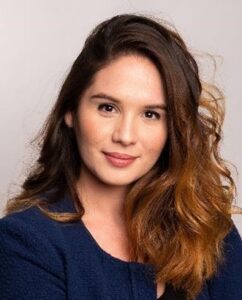
“Offshore wind power is often considered a must for carbon neutrality to succeed in the Baltic Sea Region. However, several questions remain unanswered on how to achieve a low carbon sustainable future. I hope my multi- and interdisciplinary research can tackle some of the emergent issues around accelerating sustainably offshore wind energy development.”
Doctoral Student
Email: tportela@abo.fi
Åbo Akademi University profile
Background
Upon developing her thesis in collaboration with HELCOM, Thaysa graduated in Maritime Spatial Planning (MSc) in 2016 from the Erasmus Mundus consortium of University IUAV of Venice, University of Seville and University of Azores. She worked as project management local officer in the Brazilian Coastal Zone Management Project in Brazil in 2017, and in 2018 she returned to Finland to work as project coordinator of transnational projects related to shipping and MSP in University of Turku.
Expertise
Marine Policy, Coastal and Marine Spatial Planning, Sustainable Development, Clean Energy, Decarbonization and Alternative Fuels.
Impact
Thaysa’s doctoral research focus on science-to-policy advice within the Baltic Sea region and beyond. Within The Sea, she aims to investigate the opportunities and gaps of offshore wind power development through the lens of techno-economic, socio-technical, and political mechanisms.
